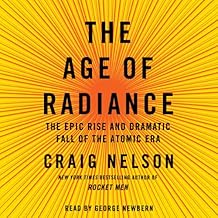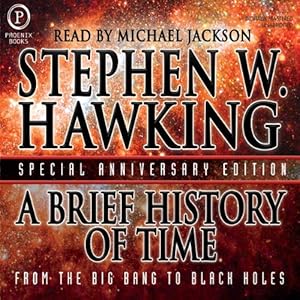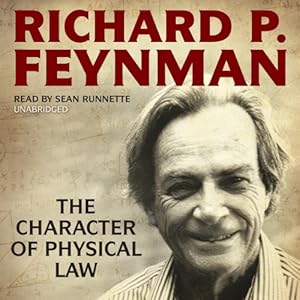In 2017, my daily commute (driving) increased from about 30 minutes to 90 minutes giving me the challenges of battling traffic, but also the opportunity to listen to audiobooks. The Libraries of South Australia allow users to borrow audiobooks. This has been a treasure trove of entertainment and learning, as I have devoured a banquet of excellent books, both fiction and non-fiction.
While I have listened to a number of biographies and fictions, I have particularly enjoyed non-fiction books on science. Below are my top five, starting at my #1 pick.
#1 The Age of Radiance: The Epic Rise and Dramatic Fall of the Atomic Era by Craig Nelson.

This book gives the history of the discovery of radiation and presents a fascinating journey from Curie to Fukushima. The biographies are rich and enthralling. I was particularly captivated by the stories of the Curies, and their remarkable achievements. Also, the role of Lise Meitner was exceptionally well covered, marking her great achievements and showing how unjust it was in her not being awarded the nobel prize with Otto Hahn. The biography of Enrico Fermi was inspiring. Teller and Oppenheimer were beautifully compared and contrasted. The book ends in discussing the risks and benefits associated with the modern use nuclear power and wonders if we are too risk adverse, particularly when comparing human loss and suffering at the hands of both nuclear power and fossil fuels.
#2 Thinking Fast and Slow by Daniel Kahneman
![Thinking, Fast and Slow by [Kahneman, Daniel]](https://images-fe.ssl-images-amazon.com/images/I/41Gl2kqMlCL.jpg)
Coming from a background in natural science, I was not aware of Nobel Prize winner Daniel Kahneman’s research in cognitive sciences. This book literally rewired my mind. Kahneman’s research elegantly shows the power of cognition and its wide implications into unconscious biases and decision-making. This book has genuinely caused me to reflect on my own cognitive biases and to understand the eponymous two agents (fast and slow) that influence my own decisions. I can say that I have implemented some of the described techniques into grant writing to present my ideas with more cognitive ease.
#3 AC/DC: The Savage Tale of the First Standards War by Tom McNichol
![AC/DC: The Savage Tale of the First Standards War by [McNichol, Tom]](https://images-fe.ssl-images-amazon.com/images/I/51zo70FKlAL.jpg)
AC/DC is a history of the first standards war over electric current fought primarily between Edison and Westinghouse. There are many lessons here concerning basic scientific discoveries and how they are translated into products and services. Manipulation, deception, shoddy science and underhanded tricks were all part of the rivalry. Edison vehemently defended direct current as the future of electricity distribution and did everything in his power to show that AC was not just unsuitable, but deadly. In this endeavour, he vigorously promoted AC in the development of the electric chair to show just how dangerous it was, hoping to increase the adoption of DC. In the end, AC became the clear winner in the long distance transmission of electricity. However, author McNichol reminds us of the importance of DC in batteries and shows us that, not only is DC here to stay, but increased use in mobile devices and power storage means that the use of direct current has an important place in our future.
#4 A Brief History of Time by Stephen Hawking

I have always wanted to read this book and was glad to find it on audiobook. When originally released, this book became a classic and brought the strange word of astrophysics to popular culture. Nowadays, black holes, the big bang, and gravitational waves are all concepts that a prominent in society and we have Stephen Hawking’s bestseller to thank. I studied this book for its style in science communication and tried to peek in on the strategies that Hawking used to explain complex subjects simply. Besides being a fascinating look into contemporary astrophysics, the chapter describing Newton’s discoveries and approach to natural philosophy were completely fascinating and were presented exceptionally well.
#5 The Character of Physical Law by Richard Feynman

This book presents seven of Feynman’s lectures on physics. Each of the lectures covered material that I studied a long time ago as an undergraduate; however, I found Feynman’s lectures to be original and captivating. He is able to draw connections between physics and thermodynamics, quantum mechanics and gravitation, and brings together an enriching overview of the fundamentals. I secretly love thermodynamics and loved Feynman’s application of the second law to the distinction of the past and future.
